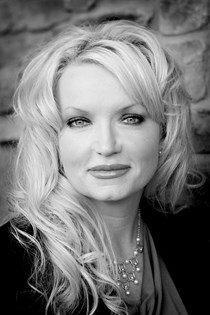Shannon I. Decker, Ph.D., one of 45 speakers at this year’s RISE West, talked to RISE about her work with social determinants of health (SDoH) and provider engagement ahead of the annual conference, which will take place Sept. 9-11 at the Loews Coronado Bay Resort in San Diego.

 Decker, executive director of risk, NAMM California, part of OptumCare, UnitedHealth Group, will present at two sessions during the first day of the main conference: the first on strategies to calculate the ROI of SDoH interventions, the other on strategies to improve provider engagement.
Decker, executive director of risk, NAMM California, part of OptumCare, UnitedHealth Group, will present at two sessions during the first day of the main conference: the first on strategies to calculate the ROI of SDoH interventions, the other on strategies to improve provider engagement.
While the two topics may not initially appear to have much in common, Decker explains that both presentations have a similar directive: they both require health care leaders and organizations to truly get to know their audience, tailor a message to that audience, and craft a strategy around that message.
“A lot of times we think we know our audience and we want to speak at people rather than listen to what it takes to move them,” said Decker, who applies her learnings and research to develop programs that help patients take an active role in their health care and motivate providers to participate in programs aimed to improve patient care.
No one-size-fits-all approach for SDoH
The good news is that more health care organizations are paying attention to the fact that medical care plays only a small factor in determining a person’s overall health and health outcomes. Other factors, such as where a person lives or his or her socioeconomic status, play a much larger role. The problem, Decker said, is that in many cases these organizations don’t truly understand the people that they serve.
“A lot of times they choose things and just throw something at it and think that will solve things. You can’t buy a program off the shelf and implement it and think it’s going to work for everyone because it’s not. It means really getting into the dirt and understanding who your patients are and listening and really trying to solve their challenges,” she said.
For example, there was a thought within her organization that retirees living further out in the desert didn’t want to be bothered with having an annual physical exam because they lived far from their doctors. But after conducting patient surveys, NAMM California decided to host lunches and health fairs on the importance of preventive care to encourage these patients to get an annual physical exam. The first year 60 people showed up for the first event and 30 people arrived the next day. But the following year, the events drew 220 people both days. The comments were overwhelmingly positive, she said. They loved it.
“I think when you calculate the ROI on any program you don’t always appreciate the awareness of the brand and the value you bring to the community, but more and more patients and people in general expect that. It’s no longer just good enough to passively provide benefits and send a letter explaining it in the mail. If you want to make a difference and move the needle, we need to be authentic in our interactions and respond in the way people need us to. There is the social capital in the market and that is priceless,” she said.
A new way to think about provider engagement
Just as you need to listen to your patients and members, you must also listen to what your providers want and need, according to Decker, who has updated her organization’s physician education program.
The key, she said, is to find out what excites them to get up and go to work. Chances are memorizing a list of codes isn’t it, she said.
“Memorization doesn’t inspire anyone. Maybe that’s how you teach a child and we fall back on that because we all went to school and had that experience, but that’s not how you interact with a highly educated adult,” she said. “We need to change this, and we should find new ways to insert ourselves in a way that we are not extraneous, and we are not a burden.”
In Decker’s case, she worked with a practicing physician to find out how to make the education more systemic and incorporate it into their work flow.
“I think when they see you are willing to make them part of the process and meet them where they are at and treat them and respect them as the highly-educated adults that they are, they become more engaged and excited. That’s how you get further with them. It’s all about authentic relationships and how we approach people,” she said.
Her advice is to make sure to listen to providers and not assume you know what they are thinking. “Think about what doctors do. They treat people and work to cure diseases. Appeal to that and use that to have conversations with them and improve how you educate them,” she said.
RISE West 2019 will take place September 9-11 at the beautiful Loews Coronado Bay Resort in San Diego. Click here to see the entire online agenda, including our pre-conference workshops, the list of speakers, and how to register for the program.

